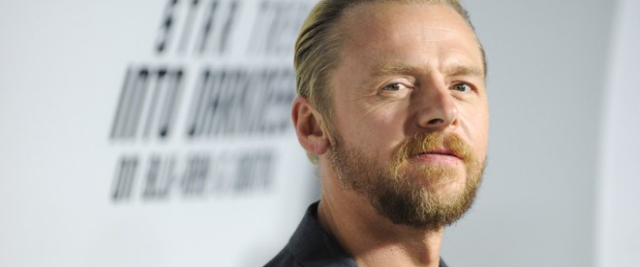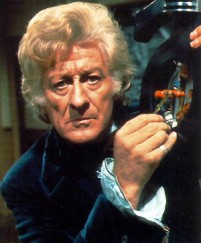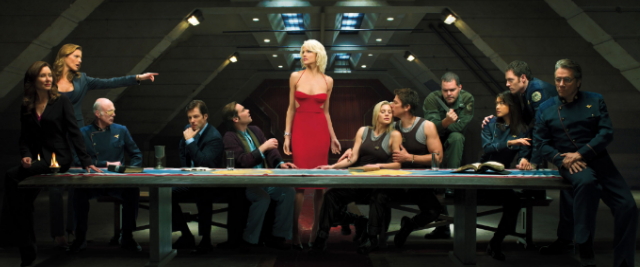
Are We Eternal Children?
Nerds! They’re everywhere! And worst of all, they look like us now! They could be anyone. They could be me… they could be YOU!
For our second official podcast, we decided to touch on an older issue, specifically “nerd culture” as it exists today and Simon Pegg‘s controversial views on it. Due to a reliance on articles and specific statements therein, this became the first podcast where we really struggled to layout what we wanted to talk about in a coherent way. It took us two days to record and it was only with the amazing editing skills possessed by Michal that it came out as well as it did.
As usual, I’m going to try and avoid anything that we might have specifically touched on in the podcast itself, which, I wholeheartedly advise checking out – heck, that’s why I’m doing this. I won’t attempt to talk for the others, whose experiences differ to mine, but I do want to talk more about the concept of “eternal children” as alluded to by Pegg.
In his article, Big Mouth Strikes Again, which is a worthy read, he mentioned, possibly satirically, the idea that culturally and societally, our generation is being treated very differently to those that passed before us. It’s more acceptable for us to still like the things we liked as children. There’s certainly much less of a stigma, and the stereotype of the social outcast reading comic books, collecting action figures and watching anime has changed irrevocably.
In essence, we are much more comfortable with the idea that people can (to paraphrase CS Lewis) “like childish things” and naturally, as has always been the case, Hollywood caters to its audience, with big budget, big spectacle productions. Star Wars, the Marvel Cinematic Universe (MCU), DC, etc, are all household names at this point and attractive to an incredibly large and diverse audience.
 As an aside, what I feel Pegg gets wrong, is the idea that movies carrying more cerebral or artistic merits are no longer seen as significant. The success of The Revenant seemingly flies in the face of that. The simple fact is that Hollywood is – and has always been – a business. There has been no point in its history where it eschewed the pursuit of money in order to promote creations of greater substance. Not that it is inherently against these things either, but it’s always been more concerned with making money.
As an aside, what I feel Pegg gets wrong, is the idea that movies carrying more cerebral or artistic merits are no longer seen as significant. The success of The Revenant seemingly flies in the face of that. The simple fact is that Hollywood is – and has always been – a business. There has been no point in its history where it eschewed the pursuit of money in order to promote creations of greater substance. Not that it is inherently against these things either, but it’s always been more concerned with making money.
Back on track, what exactly is the issue with being an “eternal child”? Is the assumption that the population is being dumbed down, infantilised, left to care far greater for the material and far less for the meaningful? Or something else?
For myself, watching the term “nerd” broaden so greatly that it now encompasses the mainstream, has been a very strange experience.
 When I grew up, I had a special love for Doctor Who and used to collect the books, the toys, the VHSes (and rented those I couldn’t get my hands on), etc. None of my friends were fans, and indeed, I felt very isolated because of my interests. I knew I would be teased for having them, and because I didn’t like the conventional things that other people my age liked.
When I grew up, I had a special love for Doctor Who and used to collect the books, the toys, the VHSes (and rented those I couldn’t get my hands on), etc. None of my friends were fans, and indeed, I felt very isolated because of my interests. I knew I would be teased for having them, and because I didn’t like the conventional things that other people my age liked.
Continuing on into later life, my love of Doctor Who remained, and I became a fan of Star Wars, Star Trek, Farscape, and many other things that again, I had no one to talk to about. For a part, these interests defined me as a person and I felt very protective over them. I hoped that when I was older, I would find a way to give back.
Now that I am an adult, Doctor Who is back on screens. I’ve seen how it’s garnered a huge following. Things have switched. It’s no longer considered weird to be the kid who likes Doctor Who. If anything, it’s much more normal.
The thing is, you might expect that lonely little boy to be elated at this sudden explosion of love for all things geeky, but often my reaction is far more melancholy. The version of the show that this new generation likes so much is one I find difficult to relate to or even enjoy. In essence, it feels like I no longer fit in with the people who now like the things I liked.
Going mainstream necessitated appealing to new audiences, and there’s nothing inherently bad about that. The reimagined Battlestar Galactica is a perfect example. The original series was a fun, space adventure, with a limited view into social interactions, whereas the reimagined series is far darker, with an attempted emphasis on realism. Via the medium of wacky spaceships and evil robots, the series managed to tell some of the most engrossing and human stories I have seen on television.

 Then, of course, there’s the other side of the spectrum, and I can’t avoid giving you a glimpse into my disdain for what some have termed “New Who”. The overuse of catchphrases, faux philosophy, cheap “tear-jerking” storylines, and all that running around… Ergh.
Then, of course, there’s the other side of the spectrum, and I can’t avoid giving you a glimpse into my disdain for what some have termed “New Who”. The overuse of catchphrases, faux philosophy, cheap “tear-jerking” storylines, and all that running around… Ergh.
It’s funny to look back and consider the days when “geek”, “nerd”, etc, were used as insults, when nowadays they are badges of pride. There’s nothing wrong with that, of course, but for me, a core part of the identity was being an outcast and having to deal with the fact that your interests are unpopular.
Now, with the term referring to a multitude of people, where do people like me fit? In many ways, I suspect I am still an outcast, though self-imposed, as I’ll always carry a greater love for the old show than for the one that’s so massively popular now.
But enough grumping! Where is the evidence that nerd culture is doing something wrong?
Is it bad to see grown ups excited for more traditionally childish things? Does that somehow diminish art or culture as a whole? Is it really in any way a bad thing?
I’m unconvinced. Hollywood has always catered to the masses. Take San Andreas, for example, the very definition of a dumb action movie. It’s completely ridiculous and massively over the top. It was also insanely successful. But what it wasn’t, is a product of nerd culture.
So, to summarise my views on this, I do not believe that Hollywood seeks to infantilise its audiences. I don’t think that’s anyone’s goal. I’m sure they’d love to see even more of their merchandise sold, but that’s not something they can force people to do.
I don’t know where this big cultural shift came from. I’d wager it has something to do with people growing up with these things in households that were more accepting of them.
The bigger question, at least to me, is less, “are we eternal children?”, and more “why does it matter if we are?”.
